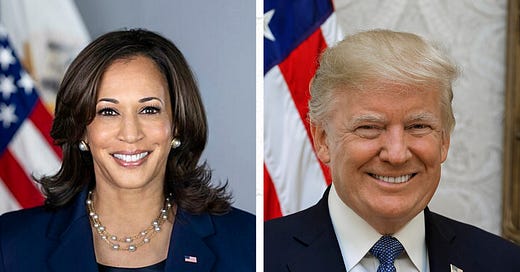The debate launched a thousand polls
Ticking 'yes' for surveys. Asimov says 'no'. As does a 1960s gem on voter data
Welcome to This Week, Those Books, your rundown on books new and old that resonate with the week’s big news story.
🎧 Would you rather listen? The podcast drops at the w/e.
We’re back from our break with a subtly refreshed outlook and format, which is, hopefully, more pithy. To welcome back our entire community of more than 10,000 subscribers in 114 countries, this post is free to read.
– Rashmee
Keep reading with a 7-day free trial
Subscribe to This Week, Those Books to keep reading this post and get 7 days of free access to the full post archives.





